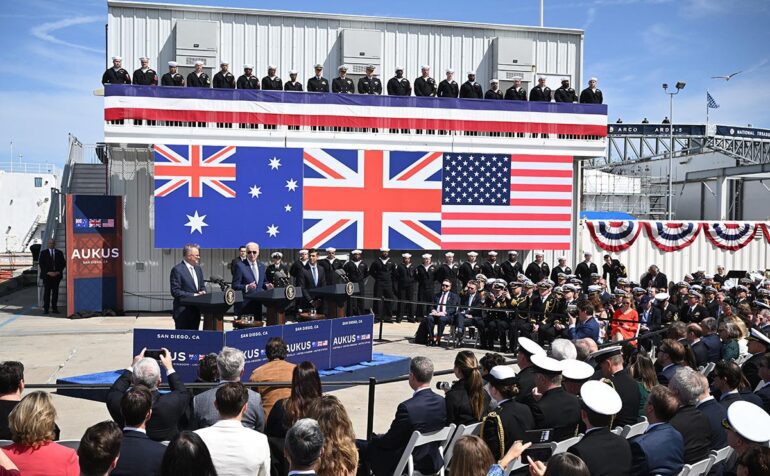TL;DR:
- AUKUS partners successfully demonstrated an AI and Autonomy trial under Pillar II.
- Australian, UK, and US AI capabilities were jointly deployed on coalition autonomous systems for an ISR mission.
- Achieved world-firsts, including live retraining of models during flight and interchange of AI models on uncrewed aerial vehicles.
- AUKUS encompasses defense and security interests, promoting technology sharing for joint capabilities.
- Collaboration among AUKUS partners accelerates the deployment of robust and trustworthy AI in complex environments.
- This trial highlights the collective capability of AUKUS partners, surpassing individual efforts.
Main AI News:
The Advanced Capabilities pillar (Pillar II) of the AUKUS partnership recently showcased a remarkable trial, displaying the potential of Artificial Intelligence (AI) and Autonomy. Collaborating on this groundbreaking endeavor, representatives from the Australian Government, alongside their counterparts from the United Kingdom and the United States, convened at the prestigious Upavon Airfield in the UK to witness this extraordinary AI demonstration.
Marking a significant milestone, this trial marked the inaugural deployment of a joint Australian, UK, and US AI capability on coalition autonomous systems for an Intelligence, Surveillance, and Reconnaissance (ISR) mission within Pillar II. The implications of this achievement are far-reaching, as it paves the way for enhanced cooperation and innovation among the AUKUS nations.
Throughout the trial, numerous groundbreaking accomplishments were realized, solidifying its position as a trailblazer in the field. Notably, the live retraining of models during flight operations emerged as a world-first, illustrating the agility and adaptability of the AI systems involved. Furthermore, the successful interchange and utilization of AI models across the AUKUS nations’ uncrewed aerial vehicles further highlighted the synergy and collaborative nature of this partnership.
Under the umbrella of AUKUS, a diverse spectrum of defense and security interests is encompassed, emphasizing the breadth and depth of its technological advancements. The core principle of technology sharing for joint capability development underscores the commitment of the partner nations to foster innovation and strengthen their collective defenses.
Hugh Jeffrey, Deputy Secretary of the Strategy, Policy, and Industry Group, emphasized the significance of this trial in alignment with the Defense Strategic Review. He stated, “This trial exemplified the determination of AUKUS partners to swiftly transform disruptive technologies into tangible capabilities.” The successful collaboration demonstrated during this trial signifies a notable stride towards comprehending the rapid deployment of robust and reliable AI systems in complex and challenging environments.
By harnessing the combined expertise and resources of the AUKUS partnership, this trial unveiled a capability that surpasses the individual capacities of any single country. It serves as a testament to the potential and effectiveness of international collaboration in propelling technological advancements within the defense sector.
As the AUKUS partners continue to forge ahead, leveraging the power of AI and autonomy, the possibilities for future breakthroughs in defense capabilities appear limitless. The successful trial sets a precedent for the seamless integration of cutting-edge technologies and paves the way for a more secure and technologically advanced future.
Conclusion:
The successful AI and Autonomy trial conducted by the AUKUS partnership signifies a significant advancement in the market. The demonstration of joint Australian, UK, and US capabilities on coalition autonomous systems showcases the potential for enhanced collaboration and innovation. The achievement of world-firsts, such as live model retraining during flight and AI model interchange, underlines the cutting-edge nature of the technologies involved.
This trial sets a precedent for the rapid translation of disruptive technologies into tangible defense capabilities, emphasizing the importance of international cooperation and technology sharing. The market can expect an increased focus on the development and deployment of robust AI systems, further strengthening the defense industry’s capabilities in complex and contested environments.

